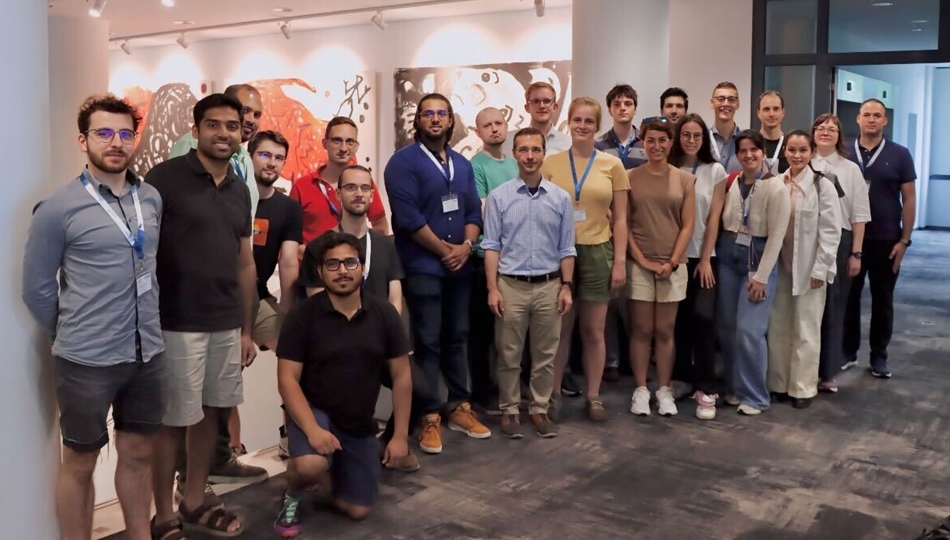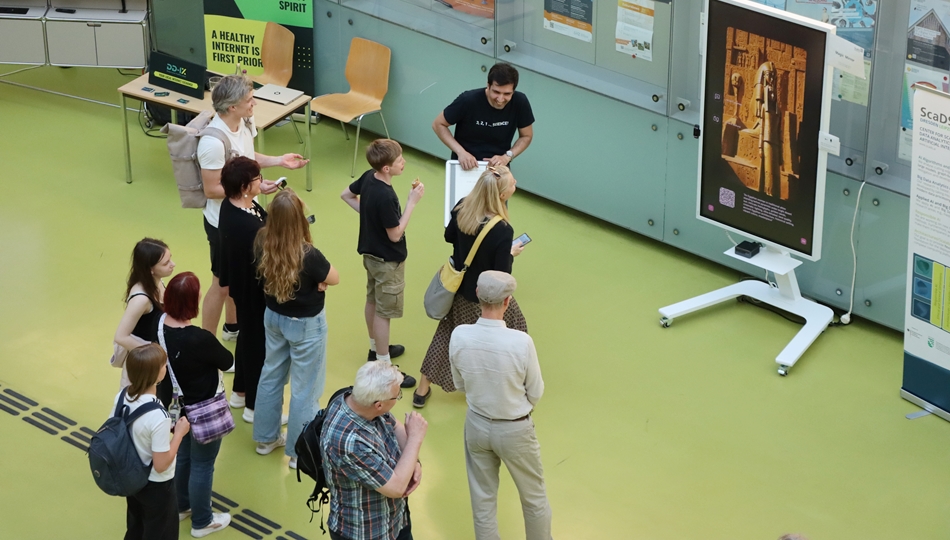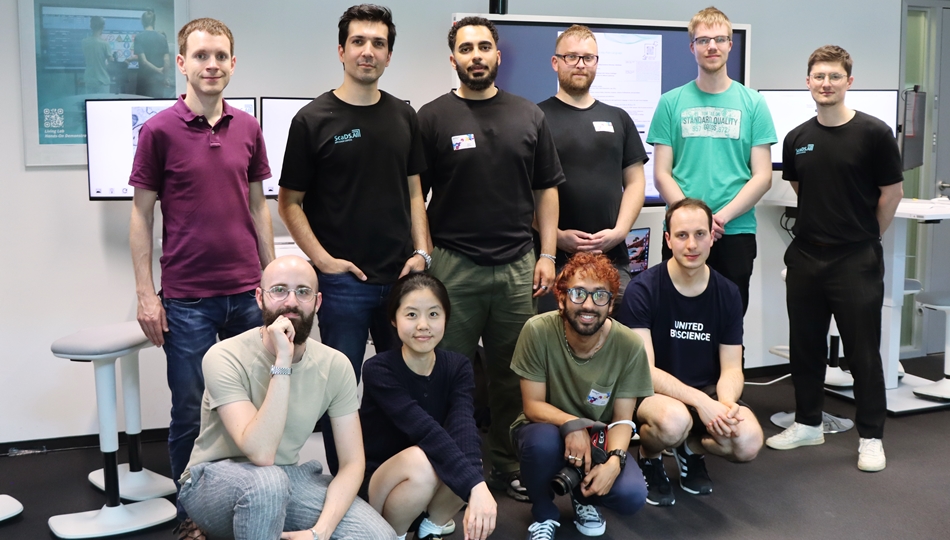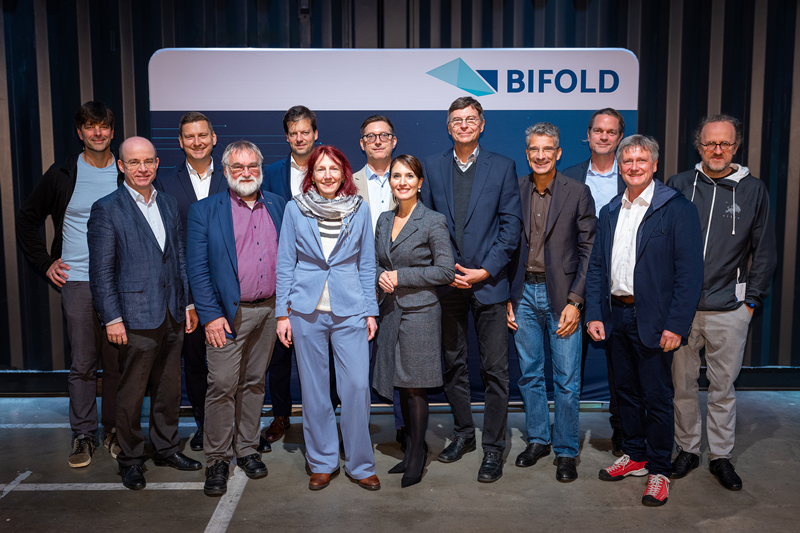
10. October 2023
All Hands Meeting of the German AI Centers in Berlin

From 09.-10.10.2023, the german AI centers met in Berlin for the All Hands Meeting 2023. The goal of the All Hands Meeting is to bring together members from all national AI competence centers to support the scientific exchange, create networking opportunities and to present the latest research results. This year, BIFOLD has taken over the main organization of the event.
All Hands Meeting 2023
For the All Hands Meeting 2023, the EUREF campus in Berlin was chosen as the location. While the first day of the event was an internal meeting for team members of the german AI centers, around 250 people joined the AI Symposium on the second day. Among the guests were Mario Brandenburg (State Secretary BMBF), Dr. Henry Marx (State Secretary, Berlin), and Gonca Türkeli-Dehnert (State Secretary, NRW).
Monday, 09.10.2023
On the first day of the All Hands Meeting 2023, all AI centers gave a glimpse into their current work during a 30-minute presentation. In those introductory talks, the main research areas were introduced as well as current projects and other activities of the centers, i.e. transfer activities or the promotion of young talents. ScaDS.AI Dresden/Leipzig structured its presentation into thee parts:
- General overview of center, research and activities (Prof. Dr. Wolfgang E. Nagel)
- Research Area presentation: Responsible AI (Prof. Dr. Birte Platow)
- Junior Research Group presentation: Patterns of Multimodal Communication – AI on Big Data (Dr. Peter Uhrig)
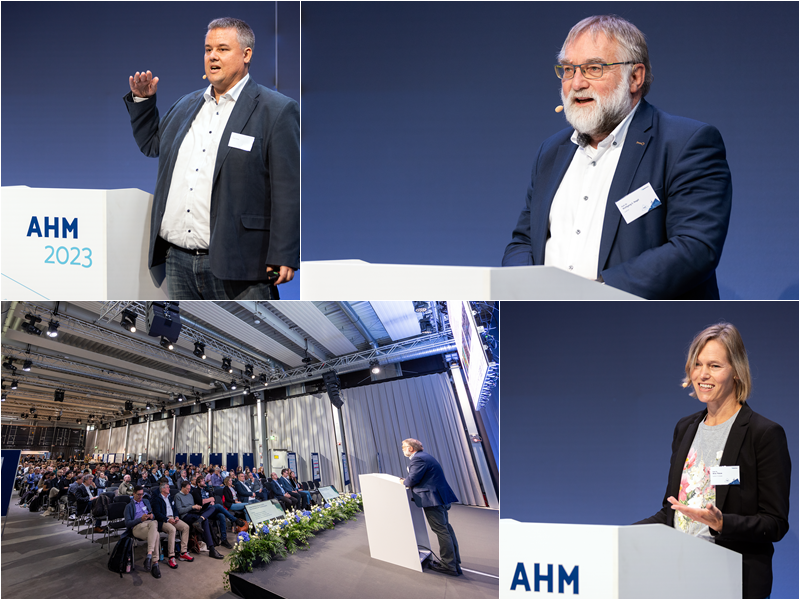
The first day was dedicated to the scientific exchange and networking between the individual centers. Parallel networking sessions allowed for a more in-depth discussion of relevant research and administrative topics:
- Trustworthy and Explainable AI
- Generative Modeling and its Applications
- Privacy-Preserving Machine Learning and Data Analysis
- Future Challenges in Machine Learning with Foundation Models
- Earth Observation
- Vision & Natural Language Processing (NLP)
- Gender & Equality in AI
- Transfer best practice: AI4schools
Tuesday, 10.10.2023
The AI symposium focussed on the societal, political and economical impact of research on Artificial Intelligence. In her welcoming address, NRW State Secretary Gonca Türkeli-Dehnert highlighted the crucial role of the German AI competence centers in fundamental research and the training of needed AI experts: “With the AI competence centers, Germany is excellently positioned to further research in trustworthy AI for the benefit of humanity – and this at an international top level. The joint, long-term funding of the centers by the federal government and the federal states strengthens the connection between research, teaching, and transfer in the field of Artificial Intelligence and Machine Learning.”
A broad variety of panel discussions with a wide range of experts further discussed the chances and challenges in AI research with national experts. The panels addressed fundamentel questions on AI research in Germany, such as:
- How does the fundamental research in Germany contribute to trustworthy AI?
- Does AI change the transfer from research to application?
- What must efficient funding of cutting-edge research look like in order to attract more AI experts?
Parliamentary State Secretary Mario Brandenburg (BMBF) emphasized the role of the german AI centers in scientific transfer activities: “The AI centers should not only conduct excellent research but also contribute to making us better and faster at transferring it.”
Furthermore, a poster session allowed all centers to present up to ten current research projects. During the session, researchers engaged with each other and were able to share ideas about potential future research collaborations.
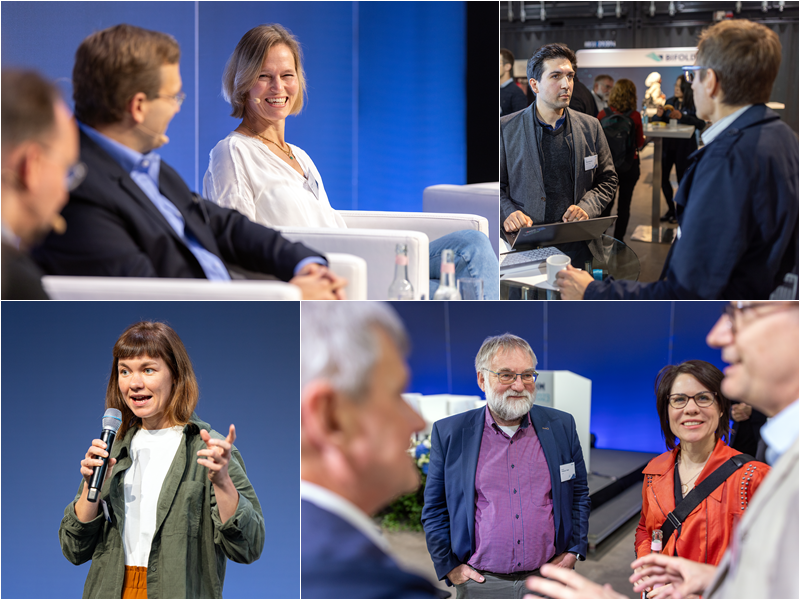
German AI Centers
The network of the national competence centers for research on Artificial Intelligence consists of six leading research institutions:
- Berlin Institute for the Foundations of Learning and Data (BIFOLD)
- Deutsches Forschungszentrum für Künstliche Intelligenz (DFKI)
- Lamarr Institute for Machine Learning and Artificial Intelligence
- Munich Center for Machine Learning (MCML)
- Center for Scalable Data Analytics and Artificial Intelligence (ScaDS.AI) Dresden/Leipzig
- Tübingen AI Center
With the institutional funding through the German government’s AI strategy, together the AI centers have already achieved great success in both research and education:
- three new professorships have been appointed
- 17 professorships are currently in the appointment process
- more than 15 junior research groups have been established.


